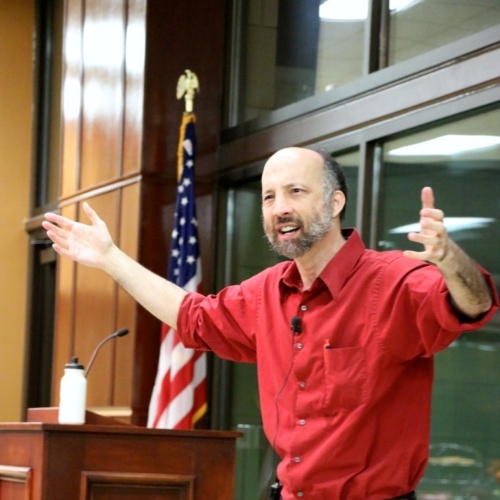
Louis Markos
Dr. Louis Markos holds a B. A. in English and history from Colgate University and an M. A. and Ph. D. in English from the University of Michigan. He is a professor of English and scholar-in-residence at Houston Christian (formerly Houston Baptist) University, where he holds the Robert H. Ray Chair in Humanities and teaches courses on British Romantic and Victorian poetry and prose, the classics, C. S. Lewis and J. R. R. Tolkien, and art and film. He is the author of twenty-five books, including The Myth Made Fact; From Plato to Christ; From Achilles to Christ; On the Shoulders of Hobbits; Ancient Voices: An Insider’s Look at the Early Church; Literature: A Student’s Guide; C. S. Lewis: An Apologist for Education; three Canon Press Worldview Guides to the Iliad, Odyssey, and Aeneid; and two children’s novels, The Dreaming Stone and In the Shadow of Troy, in which his kids become part of Greek mythology and the Iliad and Odyssey. His son Alex teaches history at the Geneva School in Boerne, TX. IVP Academic will shortly be publishing his Passing the Torch: The Case for Classical Christian Education.
When it comes to learning and to teaching, my motto has always been that of Socrates: The unexamined life is not worth living.
–Louis Markos
2024 Speaker Topics
Part I: Homer on Courage and Justice
The Christians of the early and medieval church recognized that, although the higher pagan writers of Greece and Rome lacked a full understanding of the three theological virtues of faith, hope, and love, they did understand and achieve significant insight into the four classical virtues of courage, temperance, wisdom, and justice. Chief among these higher pagan writers was Homer, who, in his Iliad and Odyssey, explored the nature and limits of courage and justice.
Part II: Homer on Courage and Justice
In my first lecture, “Homer on Courage,” I shall focus on two different types of courage that Hector and Achilles embody in the Iliad, with Hector showing forth his courage by staying true to what society expects of him and Achilles showing forth his courage by breaking those expectations. In the second, “Homer on Justice,” I shall contrast justice in the Iliad—which is maintained by instilling the key Greek concepts of aidos, nemesis, themis, and xenia in the heroes—and in the Odyssey—where a person’s heroic or villainous status is made clear by whether he honors or violates the sacred relationship between guest and host. Though these two talks are best heard in sequence, they can each stand alone.

Dr . Markos is the very best! I am thrilled that ACCS invites him to speak often. No one knows as much and can communicate as vividly about C.S. Lewis and his work. His talks are a “must see” at every ACCS conference.
We could not agree more! We are looking forward to having him.